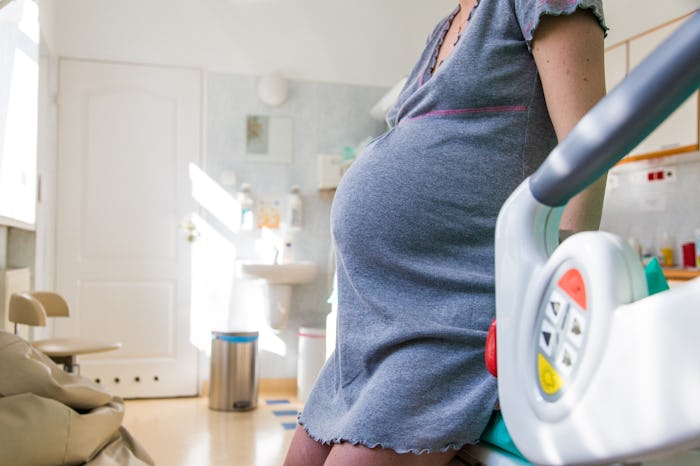As you near the end of your pregnancy, and your fatigue, discomfort, and annoyance levels rise, you might begin counting down to the end. But, what's the end and how do you get there? As it turns out, your body will go through a number of changes as it prepares for labor, and it helps to know when you'll start to dilate during pregnancy so you can prepare.
Two of the most telling signs of labor is when your cervix begins to efface (thin out) and dilate (open up), as noted by the Mayo Clinic. Though you might notice an increase in vaginal discharge, or a burst of energy to organize and clean (known as nesting) when you get close to labor, your cervix is really what you should pay attention to. At first, as the Mayo Clinic mentioned, the dilation and effacement of your cervix can be really slow, and your doctor will start to check how far along you are during your regular appointments.
Both of these processes — effacement and dilation — begin during the final few weeks of your pregnancy, but it can vary greatly between women. As Parents mentioned, your pre-labor contractions help to begin your dilation, but as your active labor starts and contractions pick up, your dilation will progress at a much quicker rate.
According to the American Pregnancy Association, it's normal for women to stay effaced or dilated for weeks leading up to pregnancy, while others may not dilate until their active labor has begun. This makes it really hard to know when exactly you will dilate during your pregnancy, but What to Expect noted that your healthcare provider will start looking for signs of dilation once you hit your ninth month of pregnancy.
The surest way to know you'll have a baby in your arms soon is when those strong, regular contractions kick in. Once your contractions become predictable and (unfortunately) painful, they will help to dilate your cervix at a much faster pace than pre-labor has.
Once your cervix is dilated completely at 10 centimeters, you know it's just a matter of time before you meet your sweet babe.
If you do feel like you are having unusual pains or contractions well before your due date, always talk to your doctor, as they can provide the best course of action for you and your little one.
